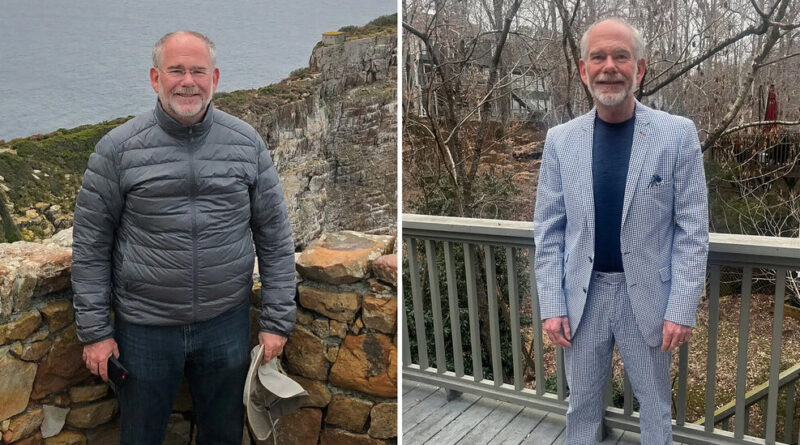The Physicians Really Are Healing Themselves, With Ozempic
When Dr. C. Michael Gibson, a cardiologist at Harvard Medical School, goes to heart disease meetings, he can’t help noticing a change.
“We will sit around at dinner and halfway through the meal, we will simultaneously push our plates away,” Dr. Gibson said. “We look at each other and laugh and say, ‘You, too?’”
They share what is becoming an open secret: They tried for years to control their weight but are now taking the new obesity drugs manufactured by Eli Lilly and Novo Nordisk.
Dr. Robert Califf, the former chief of the Food and Drug Administration, says he hardly recognizes his colleagues. So many are now so thin.
“Looking good,” he says he tells his fellow cardiologists at conferences and meetings.
There are no studies documenting the percentage of doctors taking the drugs. But physicians “are a good litmus test for drugs that are highly effective,” Dr. Califf said. If doctors who read the papers describing clinical-trial results are rushing to get a new drug, that is an indication that it’s really promising.
His colleagues’ use of Wegovy and Zepbound reminds him of the use of statins, drugs that lower cholesterol, in their early days. Cardiologists, who were most familiar with the consequences of high cholesterol levels, were among the first to take the drugs in large numbers.
Many newly thin cardiologists and diabetes specialists, like so many of their patients, had risk factors for heart disease. Or their blood sugar was creeping up. Or just the physical strain of carrying excess weight made everyday life burdensome. They say they like their new looks but also their new health and energy. In a way, they feel like members of a club.
Four years ago, Dr. Darren McGuire, a cardiologist at the University of Texas Southwestern, was struggling with obesity and Type 2 diabetes. Then he started taking Ozempic, the Novo Nordisk diabetes drug that is sold under the name Wegovy for obesity. He later switched to Mounjaro, from Eli Lilly, which is sold as Zepbound for obesity.
He lost 30 percent of his weight and got his blood sugar under control. Now, he said, he’s “feeling better than ever.”
He is also struck by the number of colleagues who seem to be using the medications.
“People look pretty different,” said Dr. McGuire, who is on advisory boards for Novo Nordisk and Eli Lilly. “It is amazing.” He described one prominent diabetes specialist, Dr. John Buse of the University of North Carolina, who “has shrunk away.”
Not quite, Dr. Buse said. But, he said, “I lost 25 percent of my body weight and it totally changed my life.” He had struggled with his size since childhood, gaining, losing and then gaining weight again.
When he dieted, he “would get crazy hungry,” Dr. Buse said. With Wegovy, he said, his weight dropped effortlessly until he reached his goal. Then his appetite returned, which was scary. But instead of regaining pounds, he maintained a consistent weight as he continued to take the drug.
Like other patients, he found that taking the drugs eliminated most of his desire to drink alcohol. Before he started Wegovy, he often would have two or three drinks with dinner. Now he has one, or none.
Dr. Buse, who is a consultant for Novo Nordisk and Eli Lilly, said that he did not often ask people at diabetes meetings if they were taking one of the drugs but that “there are people who have changed a lot.” He said he would “bet dollars to doughnuts” that they were on weight-loss medication.
Some cardiologists are still “in the closet,” Dr. Gibson said.
One is a cardiologist in Boston. She said the person who prescribed Ozempic for her was also a female cardiologist who was taking it. She asked not to be identified because she had told only a few people she was on the drug. She was trying to keep her medical information private, although she suspected that her colleagues might have guessed. She added that she was pretty sure she knew who else was taking one of the drugs.
“Yes, you can definitely tell,” she said. “And when you go to dinners, you can definitely see. We eat, like, an eighth of our meal. I know what’s going on here.”
The doctors know they are privileged.
At first, Dr. Buse’s health insurance paid for his Wegovy. But soon North Carolina stopped paying for obesity drugs for state employees, so he paid out of pocket. With a list price of $1,349 a month, it was a major expense.
Then, at a meeting in Europe, he asked a colleague to prescribe Wegovy for him and got a six-month supply. Dr. Buse was able to purchase Wegovy for a quarter of what it cost in the United States.
The doctors also know how to advocate for themselves and navigate the medical system better than many of their patients do.
Dr. McGuire’s insurer initially declined to pay for his drugs. “I had to appeal,” he said. “I have a relationship with a primary care physician and know when to keep pushing.”
His insurer agreed to pay.
Dr. Gibson said that his insurer had paid without issue and that he wanted to discuss his decision to take Wegovy openly. (He recently switched to Lilly’s Zepbound, also covered by his insurance, because it elicits an even greater weight loss.)
“A lot of people are of the mind-set that it is shameful, that it is cheating to use a drug,” Dr. Gibson said.
But the obesity drugs changed his life, he said: “It’s the greatest thing I ever did.”
And even Zepbound, powerful as it is, is just the beginning, Dr. Gibson said.
“There are 120 new agents coming along,” he noted, referring to drugs in clinical trials. “I look forward to ones that may have even better safety and effectiveness.”

